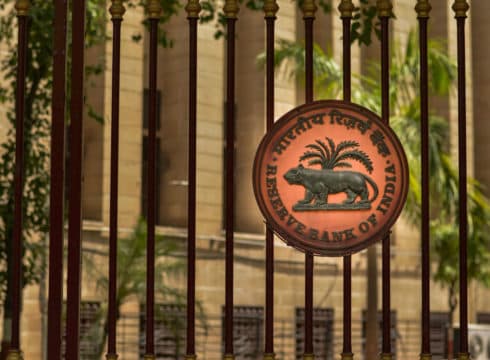The Reserve Bank of India has increased the lending cap for each individual lender from INR 10 Lakh to INR 50 Lakh
The RBI presented the fifth bi-monthly Monetary Policy Statement, 2019-20 on Thursday
Industry experts say the move will attract more investors towards P2P platforms
Inc42 Daily Brief
Stay Ahead With Daily News & Analysis on India’s Tech & Startup Economy
The Reserve Bank of India has increased the lending cap for each individual lender from the INR 10 Lakh to INR 50 Lakh. The RBI announced while presenting the fifth bi-monthly Monetary Policy Statement, 2019-20 on Thursday (December 5).
The RBI said that a review of the functioning of the lending platforms and lending limit was carried out and in order to give the necessary push to lending platforms, the aggregate exposure of a lender to all borrowers any point of time, across all P2P platforms, shall be subject to a cap of INR 50 Lakh.
The announcement, industry experts say, will attract more funding for P2P platforms.
“This is a time to rejoice for all P2P players. We had been asking the RBI to reconsider the limit on P2P lending since a long time. This move is a big positive for all P2P companies and investors and shows the RBI’s trust and confidence in P2P lending to resolve the problem for existing credit gap in the market,” said Abhishek Gandhi, cofounder and CFO, RupeeCircle.
At present, the aggregate limits for both borrowers and lenders across all P2P platforms is INR 10 Lakh and exposure of a single lender to a single borrower has a cap of INR 50K across all NBFC-P2P platforms.
Majority of Indian investors will fall within this cap of INR 50 Lakh. “We welcome this move by RBI as P2P enters into a new era from today. Now, P2P lending stands equal against other investment options like MF, FD, Bonds, PMS etc. New investment limit will attract HNIs to explore P2P lending as a new investment option. Even a small exposure to P2P investment will improve their portfolio-level returns,” said Bhavin Patel, cofounder and CEO, LenDenClub
The RBI also will also put an end to the current requirement of escrow accounts having to be necessarily opened with the lending bank. This was a condition and was operated by a bank-promoted trustee for transfer of funds.
“This will help provide more flexibility in operations. Necessary instructions in this regard will be issued shortly,” the central bank said.
RBI’s announcement will also benefit the existing investors. “For existing investors, this will give them the ability to diversify more and earn more through P2P investments,” said Patel.
“We expect the existing investors on our platform to scale up their investments further. Also, more HNIs would now look at P2P lending as an investment option, which is a very positive sign for the industry,” Gandhi added.
RBI’s move is seen as an opportunity by lenders to improve their reach and returns by creating diversified portfolios that lend themselves to sustainability. The increased limit is likely to ease credit supply in the market, which will benefit MSMEs and startups looking at digital lenders for borrowing.
“As the next step, institutional lenders need to be further incentivized by removing the limit for them to further the flow of alternative credit into the economy through NBFC-P2P platforms. Thanks to RBI, P2P lending sector will celebrate Christmas early this year,” Rajat Gandhi, founder and CEO, Faircent, said in a statement.
{{#name}}{{name}}{{/name}}{{^name}}-{{/name}}
{{#description}}{{description}}...{{/description}}{{^description}}-{{/description}}
Note: We at Inc42 take our ethics very seriously. More information about it can be found here.


